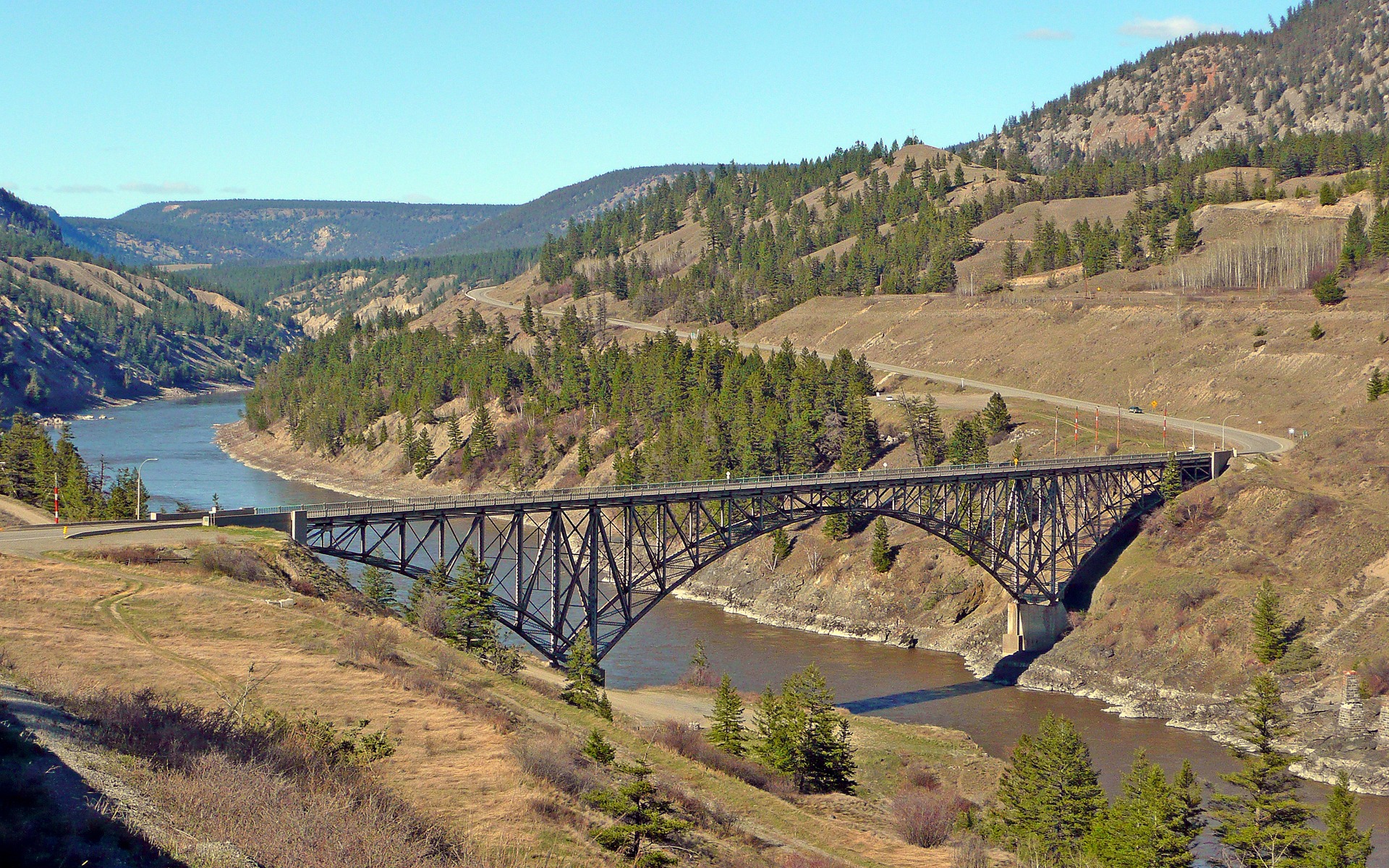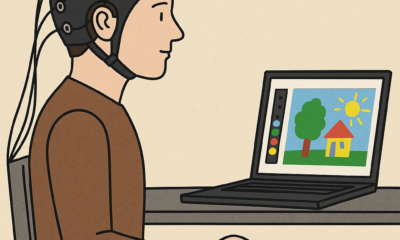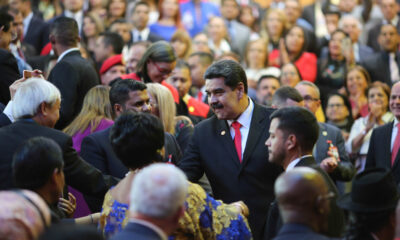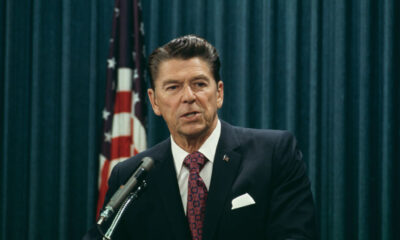Executive
Time To Listen to and Empower Steelworkers
The rank-and-file of the United Steelworkers would actually benefit from the proposed Nippon Steel deal, and many of them know it.

Last week, Democratic presidential candidate Kamala Harris announced that she was opposed to the sale of U.S. Steel to Japan’s largest steelmaker, Nippon Steel. The timing was curious since it came only days after the White House signaled that it would delay review of the $14.9 billion purchase until after the election.
The U.S. Steel deal – and the steelworkers
The Biden-Harris administration had for months telegraphed its imminent rejection of the deal but was apparently surprised by the grassroots opposition from union steelworkers and community leaders. According to Chris Kelly, mayor of West Mifflin, Penn., the White House, which boasts of its “worker-centered” economic policies, had never bothered to consult with workers and communities on their views of the deal.
That changed with news of President Biden’s intention to block the purchase and U.S. Steel’s announcement that such an act would close the heavily unionized but outdated blast furnace mills, with thousands of workers losing their jobs.
Union members and local leaders expressed support for the Nippon Steel deal and how it would advance their priorities of securing jobs, producing high-quality steel, and investing in their communities. Jason Zugai, vice president of USW Local 2227, asserted that the deal “would solidify the jobs in the Mon Valley for the next 50 to 100 years.” Braddock Borough councilwoman Chardae Jones praised Nippon Steel for “not just promising investment in these plants, but investments in the people.”
Harris, while purporting to care about steel workers’ votes in states such as Pennsylvania, ignores these facts. Nevertheless, it is increasingly clear what union steelworkers want: good jobs that invest in their communities, opportunities to do high-quality work, and contribution to American industrial strength. Nippon Steel’s investments and technology will give them the tools to do so.
China likes to dump steel
While chasing these priorities, American steelworkers also must contend with being at the frontlines of geopolitics due to Beijing’s aggressive use of steel dumping in its strategic competition against Washington. At a House Select Committee on the Chinese Communist Party hearing, Ranking Member Raja Krishnamoorthi noted that China overproduces its domestic steel needs by 8%. That 8% surplus is equivalent to America’s total production and, thanks to generous subsidies from Beijing, sells at prices 40% lower than American steel. In response, the White House announced increased tariffs on Chinese steel in May 2024.
Nippon Steel’s commitments would give steelworkers the tools they need to protect their jobs and their communities. The company has pledged to uphold the USW labor agreement, not to shutter or transfer U.S. Steel’s facilities overseas, and to move its North American headquarters to Pittsburgh. Backing these promises are Nippon Steel’s 40-year American union steelmaking legacy at facilities such as Wheeling-Nippon Steel and Standard Steel. These plans not only ensure job security for USW members but include investments in Pittsburgh and surrounding towns, where U.S. Steel can account for 30% of the local tax revenue.
Nippon has some interesting technology
On top of these commitments is Nippon Steel’s $2.7 billion investment to improve the quality and volume of U.S. Steel’s products. This number includes $1.4 billion of investment in USW-represented facilities, $1 billion to improve the yield, efficiency, and quality of steel from the Mon Valley Works, and $300 million to revamp the blast furnace at the Gary Works. These plans for U.S. Steel are part of Nippon Steel’s strategy to be the second-largest steelmaker in the world and “best steelmaker” by quality and capability. Its expanded capacity is a vote of confidence in the American market and a way to shield it from Chinese dumping efforts.
Transfer of Nippon Steel’s heated hydrogen injection technology to reduce iron ore will also be crucial to making quality products. This method can already reduce carbon emissions by 33%, and the steelmaker expects to achieve 50% reductions by 2040. These advances will benefit USW members since this technology allows union-staffed blast furnace plants to compete with non-union electric arc mills on emissions and efficiency, while surpassing them with purer, higher-grade steel needed for automobiles.
Nippon Steel’s emphasis on product quality is important, considering recent studies. In December 2020, Cleveland-Cliffs – Nippon Steel’s competitor for U.S. Steel – purchased the Weirton tinplate mill before shutting down operations in February 2024, blaming foreign competition. Yet the bipartisan International Trade Commission found that Cliffs’ customers were actually paying higher prices for foreign tinplate products because the company could not meet the desired quality or availability.
Rank-and-file steelworkers would benefit from that deal
Cleveland-Cliffs’ inability to provide high-quality products is especially concerning in light of its continuing desire to purchase U.S. Steel’s blast furnace mills. Given its previously uncompetitive $7.3 billion bid for U.S. Steel in 2023, its subsequent purchase of Canadian steelmaker Stelco for $2.8 billion, and the $1.5 billion in stock buybacks it made in 2024, it is difficult to see how Cleveland-Cliffs can finance the investments U.S. Steel needs. Nippon Steel has no such concerns.
Regardless of the outcome in November, the next administration, whether led by Harris or her opponent, Donald Trump, should want what workers want: secure jobs making quality products that strengthen their communities and American industry. Nippon Steel’s investments and technology will give American steelworkers the tools to do so. Rather than talking to their labor bosses, Washington should listen to and empower steelworkers instead.
This article was originally published by RealClearPolitics and made available via RealClearWire.
-

 Civilization5 days ago
Civilization5 days agoIlhan Omar Did Not Flee From Oppression As A Refugee – She Was Fleeing Justice & Has Been Installed To Attack – This Video Speaks Loud & Clear
-

 Guest Columns4 days ago
Guest Columns4 days agoShe Saved Her Life. 7-Eleven Fired Her
-

 Civilization5 days ago
Civilization5 days agoThis Thanksgiving, Celebrate the New Beacon of the American Dream
-

 Civilization4 days ago
Civilization4 days agoDemocrats’ Viral Video Lights Match to the Republic
-

 Guest Columns3 days ago
Guest Columns3 days agoWaste of the Day: What’s Big, Grey And Costs $350K?
-

 Civilization3 days ago
Civilization3 days agoThe AI Challenge: Palantir, the Pope, and Paul Kingsnorth
-

 Civilization3 days ago
Civilization3 days agoNo Kings, No Queens, No Blind Loyalty
-

 Executive2 days ago
Executive2 days agoWaste of the Day: California’s $450 Million 911 Center Doesn’t Work











